- Author Jason Gerald gerald@how-what-advice.com.
- Public 2023-12-16 10:50.
- Last modified 2025-01-23 12:04.
Windows 7 lets you change the display language for most of its interface. The process of changing the language is quite easy and clear if you are using Windows 7 Ultimate or Enterprise. If you are using Windows 7 Starter, Basic, or Home, you can install the Language Interface Pack, which translates the most widely used elements in the operating system into the language of your choice. You can also change the keyboard input language so you can type in another language.
Step
Method 1 of 3: Display Language (Ultimate and Enterprise)
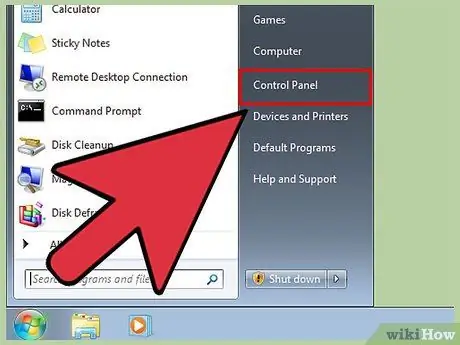
Step 1. Open the Control Panel
If you're using Windows 7 Ultimate or Enterprise, you can install a language pack that changes most Windows interface languages. This language pack is only available for Windows 7 Ultimate and Enterprise -- if you're using Windows Starter, Basic, or Home, you can install the Language Interface Pack (LIP). The LIP package translates only part of the interface, and requires that you have the base language pack. Read the next section for more information.
You can open Control Panel from the Start menu
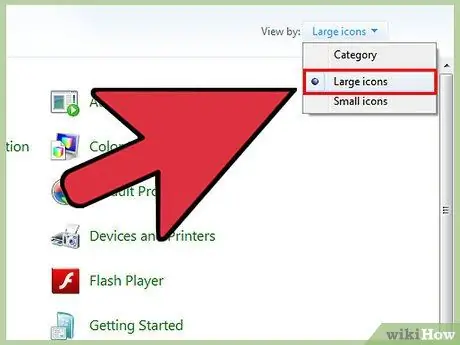
Step 2. Click the "View by" menu, then select "Large icons" or "Small icons" to make it easier for you to access all Control Panel options
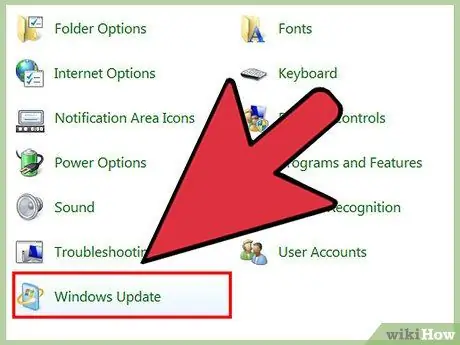
Step 3. Select the Windows Update option
You can use Windows Update to download any available language packs.
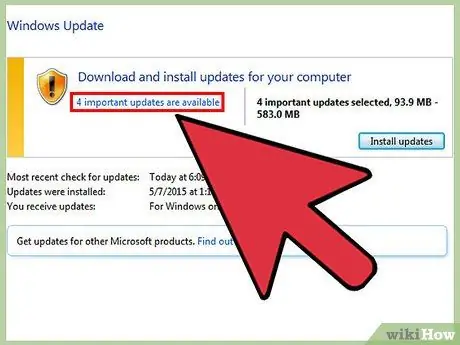
Step 4. Click the "# optional updates are available" link -- if the link doesn't appear, click "Check for updates"
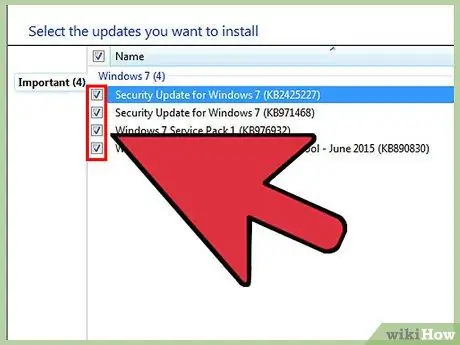
Step 5. Check the box for the language you want to download, then click OK
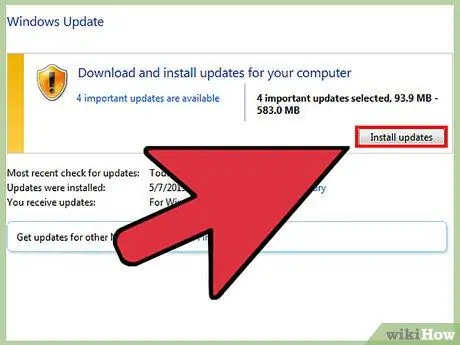
Step 6. Click
Install updates.
You may be prompted to continue the action by UAC, and prompted for an Administrator password.
The language pack download process may take a few minutes
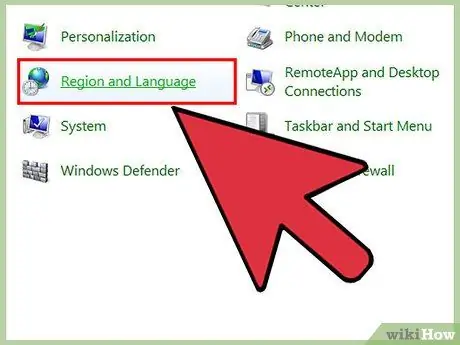
Step 7. Return to Control Panel, then select "Region and Language"
Open the Keyboards and Languages tab.
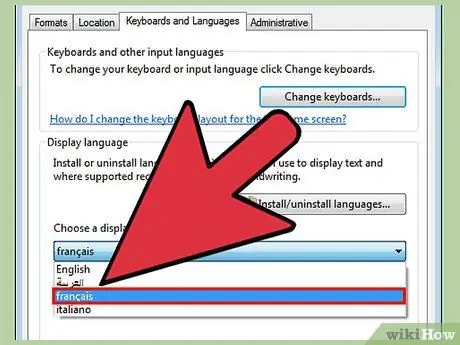
Step 8. Select the language you just installed from the "Choose a display language" menu
All the languages you have installed will appear in the menu.
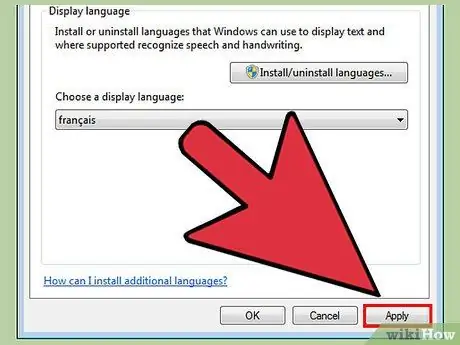
Step 9. Click
Apply, then Log off now to exit the system. When you log back into Windows, your changes will take effect.
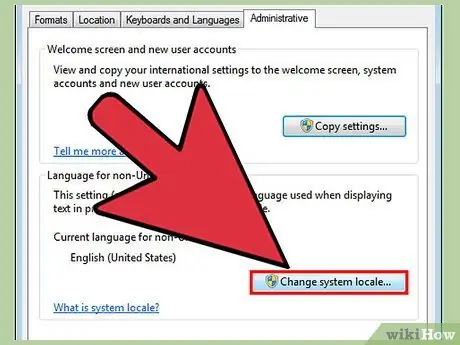
Step 10. Change your system region if your preferred language is not displayed in some programs
Some programs will not use the new language until you change the system region to the appropriate region.
- Click the Start menu then open Control Panel
- Go to the "Region and Language" option.
- Click the Administrative tab, then click Change system locale.
- Select the language you just installed and then restart the computer when prompted.
Method 2 of 3: Display Language (Any Version)
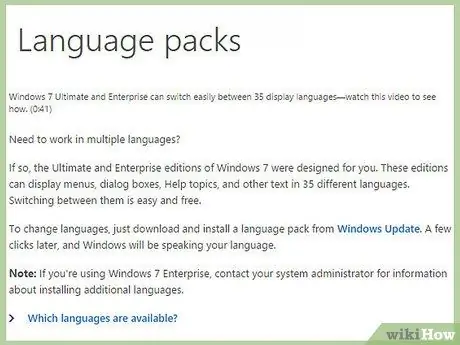
Step 1. Know the difference between language pack and LIP
Regular language packs can change the language of most Windows interface elements, and are only available to users of Ultimate or Enterprise editions of Windows (see the top of this article). For users of other versions of Windows, there are LIP packages that translate only the frequently used parts of the interface. You must have a base language pack to install LIP, as not all interface elements are translated.
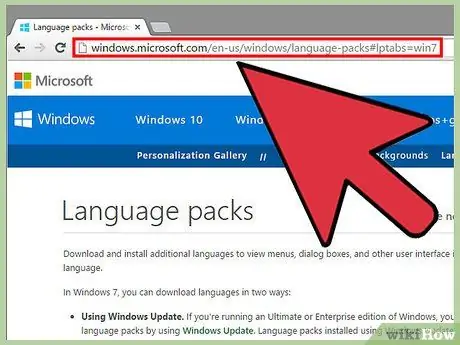
Step 2. Visit the LIP download page here
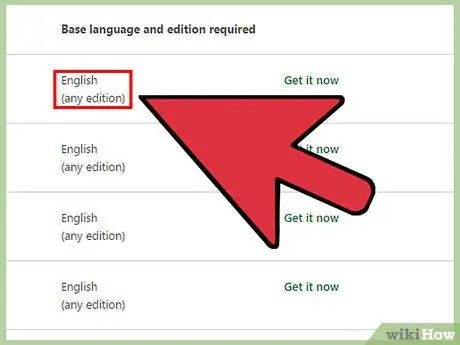
Step 3. Check the terms of use
The third column in the table contains the base language of the LIP, and the version of Windows that should be used.
If a particular LIP package requires you to use the Ultimate or Enterprise version of Windows, you will need to upgrade to Windows in order to use the LIP
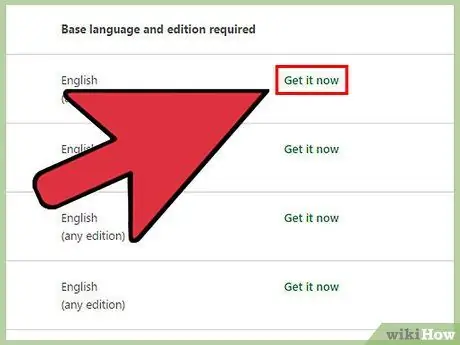
Step 4. Click the Get it now link
The LIP download page for your language of choice will open -- it will appear in the language of your choice.
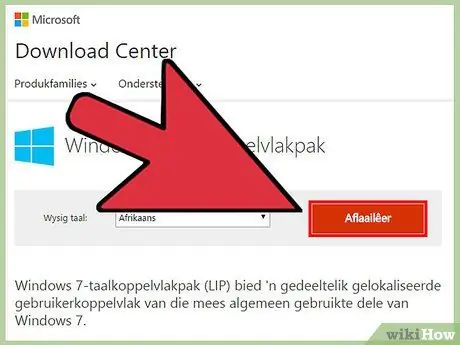
Step 5. Click the Download button
A new window containing the language files will open.
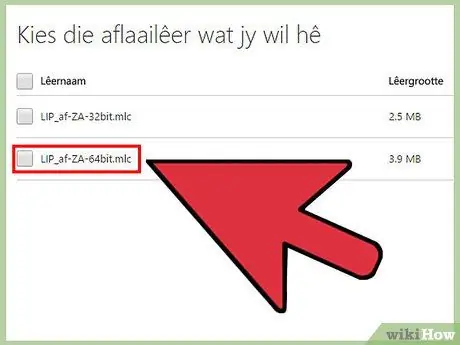
Step 6. Select the appropriate file for your computer
You must choose the 32-bit or 64-bit version of the LIP. You can find your version of Windows by opening the Start menu, right - clicking Computer, and selecting Properties. In that window, check the entry "System type".

Step 7. Check the box for the file you want, then click the Download button
The LIP file will download to the Downloads directory.
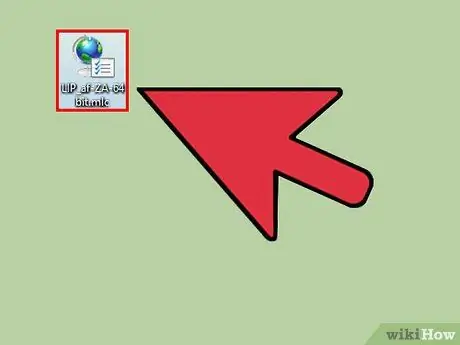
Step 8. Double click on the file you just downloaded
The language pack installation window for your preferred language will open. Click Next to start the installation.
You will be asked to read and understand the Microsoft rules before installing the language pack
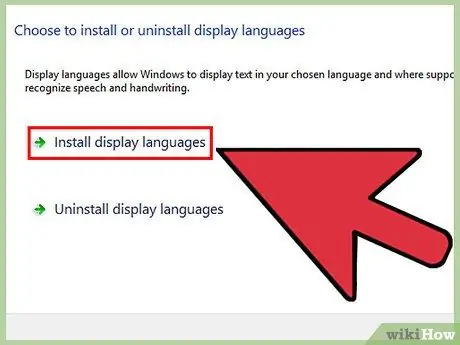
Step 9. Read the readme file for the language pack, which will appear before the language pack is installed
Generally, you do not need to read this file, but it may contain information about common errors or compatibility issues.
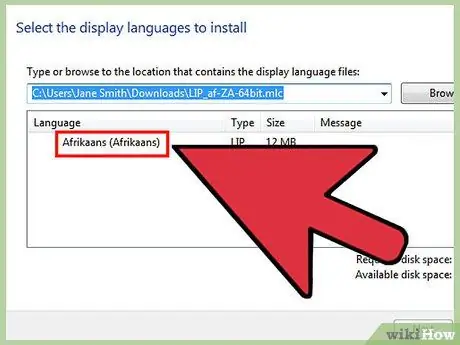
Step 10. Wait for the language pack installation process for a few minutes
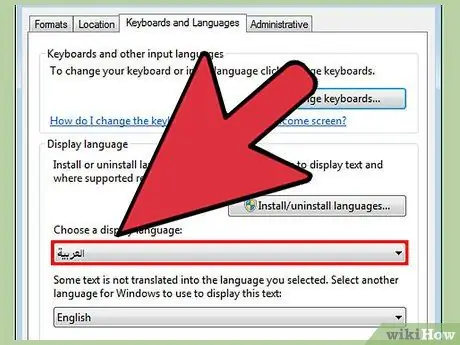
Step 11. Select and apply your new language pack
After the installation is complete, you will see a list of languages installed on the system. Select the language you just installed, then click Change display language.
If you also want to change the language on the Welcome screen and the entire system account, tick the checkbox below the list of languages
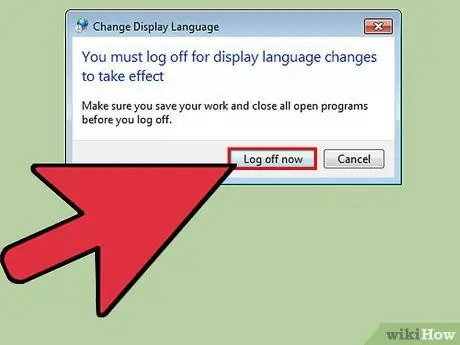
Step 12. Log out of the system to apply the changes
You will be prompted to exit the system to change the language. When you log back in, Windows will appear with the new language. Interface elements that are not translated by LIP will be displayed in the base language.
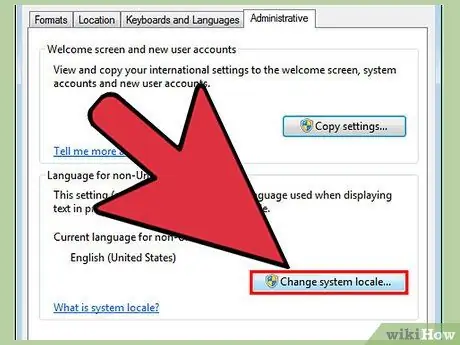
Step 13. Change your system region if your preferred language is not displayed in some programs
Some programs will not use the new language until you change the system region to the appropriate region.
- Open Control Panel, then select "Region and Language".
- Click the Administrative tab, then click Change system locale.
- Select the language you just installed, then click OK. You will be prompted to restart the computer.
Method 3 of 3: Input Language
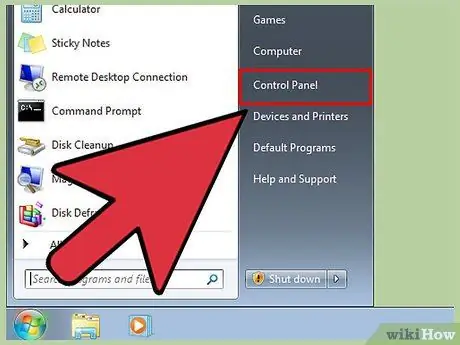
Step 1. Open Control Panel
You can add a keyboard layout to your Windows installation, so you can type in multiple languages.
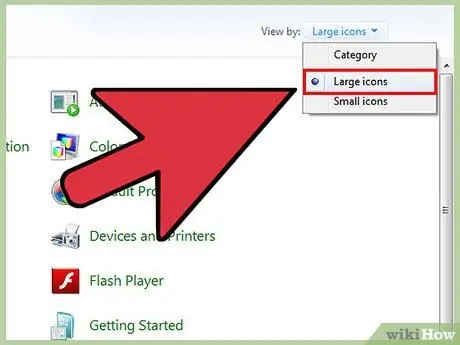
Step 2. Click the "View by" menu, then select "Large icons" or "Small icons" to make it easier for you to access all Control Panel options
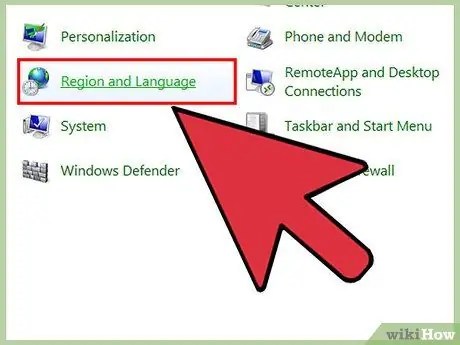
Step 3. Select "Region and Language", then click the Keyboards and Languages tab
Click the Change keyboards… button.
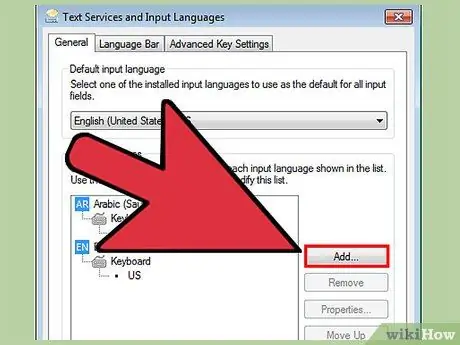
Step 4. Click
Add to install other languages. A list of available languages will appear.
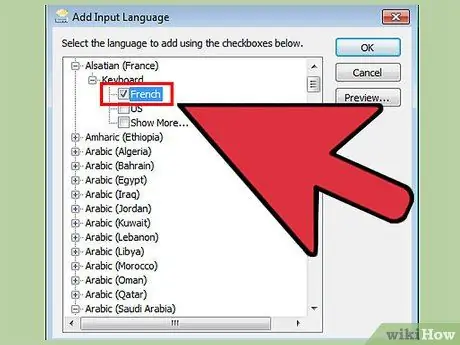
Step 5. Select the keyboard language you want to install
Develop the language, then expand the Keyboard option. Select the type of language you want by checking the box next to it, then click OK to add a language.
Certain languages may have several options if the dialect used varies from region to region
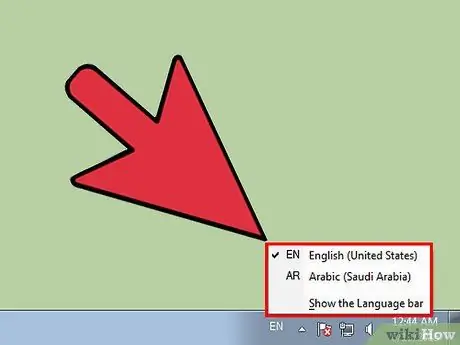
Step 6. Switch between languages by using the Language bar available on the taskbar
This bar is next to Systray and the clock, and displays the language name abbreviations. Clicking on the language name abbreviation will allow you to switch between the different input methods.
- You can also press Win+Space to view the installed languages.
- If you can't see the Language bar, right-click on the taskbar, select Toolbars, then select "Language bar".






